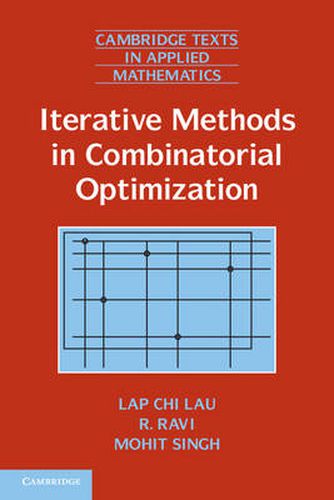Readings Newsletter
Become a Readings Member to make your shopping experience even easier.
Sign in or sign up for free!
You’re not far away from qualifying for FREE standard shipping within Australia
You’ve qualified for FREE standard shipping within Australia
The cart is loading…






With the advent of approximation algorithms for NP-hard combinatorial optimization problems, several techniques from exact optimization such as the primal-dual method have proven their staying power and versatility. This book describes a simple and powerful method that is iterative in essence and similarly useful in a variety of settings for exact and approximate optimization. The authors highlight the commonality and uses of this method to prove a variety of classical polyhedral results on matchings, trees, matroids and flows. The presentation style is elementary enough to be accessible to anyone with exposure to basic linear algebra and graph theory, making the book suitable for introductory courses in combinatorial optimization at the upper undergraduate and beginning graduate levels. Discussions of advanced applications illustrate their potential for future application in research in approximation algorithms.
$9.00 standard shipping within Australia
FREE standard shipping within Australia for orders over $100.00
Express & International shipping calculated at checkout
With the advent of approximation algorithms for NP-hard combinatorial optimization problems, several techniques from exact optimization such as the primal-dual method have proven their staying power and versatility. This book describes a simple and powerful method that is iterative in essence and similarly useful in a variety of settings for exact and approximate optimization. The authors highlight the commonality and uses of this method to prove a variety of classical polyhedral results on matchings, trees, matroids and flows. The presentation style is elementary enough to be accessible to anyone with exposure to basic linear algebra and graph theory, making the book suitable for introductory courses in combinatorial optimization at the upper undergraduate and beginning graduate levels. Discussions of advanced applications illustrate their potential for future application in research in approximation algorithms.